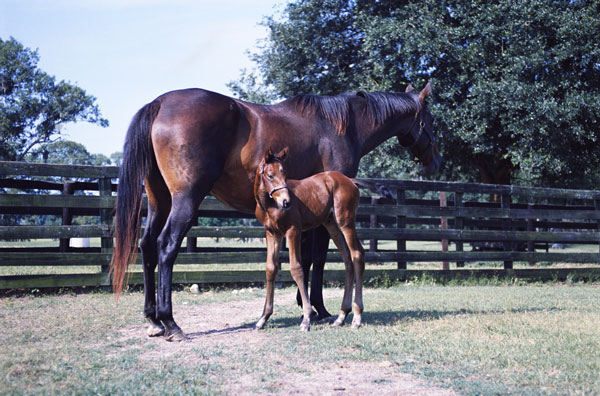
With drought damaged pastures and farm land, wide spread water shortages, the continued threat of wildfire and the high cost of buying and transporting out-of-state hay, the Texas horse industry is the latest to fall into crisis as more and more horses are being dropped at rescue facilities and many more are being abandoned as the sluggish economy leaves horse and donkey owners few options for dealing with a spiraling problem.
“Many people fail to realize the Texas horse industry is a $5.3 billion business, about equal to the state’s cotton industry, and the industry is in a serious crisis right now as horse owners struggle to feed and water the state’s estimated one million horses. Forage and even water are in short supply,” says Dr. Dennis Sigler, Texas AgriLife horse specialist.
Sigler says the cost of maintaining horses has increased drastically and points to drought-ravaged pastures and water restrictions in Texas as growing concerns that dampen the prospect of immediate relief.
“Water tanks are drying up and in some cases water suppliers have been limiting water resources to livestock use. With the prospect of a continuing drought over the winter months and into the spring season, the problem could get even worse,” Sigler adds.
And that’s saying a lot. Popular horse auctions in places like Fort Worth and Granbury are seeing record numbers of horses filter through their arenas, and for now, it’s strictly a buyer’s market—if there is anyone buying.
“We have trucks and trailers lined up on horse auction days just about as far as you can see. These horses—you can’t feed them, the pastures are brown and the winter hay is all used up. If you can’t feed them and water them, what else can you do but sell them?” asks Clayton O’Brien with Hockley Livestock Auctions in Waller. “But a good many of the horses we are seeing are in poor condition. I have seen some go for $50 to $200, and I’ve heard some talk about dead animals in the field and others just walking the back roads.”
Bargain prices
O’Brien says if you are looking for a healthy ranch horse, those are being auctioned off as well, and the prices are lower now than they have been in years. But he also warns that price alone isn’t a good reason to buy a horse unless you can adequately care for it.
That’s also the message from Sandy Grambort at Fort Worth’s Humane Society of North Texas. She says the Humane Society has taken all the horses and donkeys it can take and is now working with volunteers who can provide temporary stable and also working with distressed horse owners by helping them to get out-of-state hay.
“We receive grant funding and one of the projects where we are stretched at the moment is dealing with the horse and donkey crisis caused by the drought. We just can’t take any more animals, but we have been helping pay for hay,” Grambort reports.
She says many horse owners have simply given away horses in an effort to cull their numbers.
“In spite of banning equine slaughter for consumption in Texas, a lot of horses are being auctioned off and still head to the slaughterhouses in Mexico. It’s a horrible practice to many, but commercial slaughters did bring relief in the past during times of industry crisis, like the current drought,” she added.
Grambort says the dilemma Texas horse owners are facing is being unable to acquire or afford adequate forage and in some cases to have adequate water to keep the animals alive. “And euthanasia and disposal of the carcass can cost as much $500 an animal.
“I’ve seen large round bales of out-of-state hay selling for $145 over the last week, and horse owners, especially those with multiple horses, are suffering through the same sluggish economy as the rest of us. Everybody is asking what can be done, and no one seems to have a good answer,” she said.
Grambort says she believes the Texas Department of Agriculture will need to step in and provide some plan or form of assistance at some point, especially if problems continue to mount. But with a freeze on state budgets and constant pressure for more spending cuts, she admits that holding out hope state aid will come is little more than a long shot.
About the Author(s)
You May Also Like






